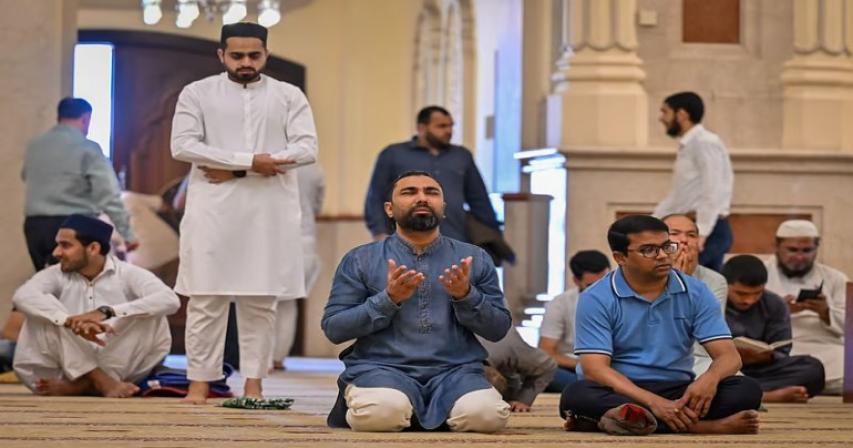Ramadan 2025 in UAE: 5 rules to follow during holy month

Residents throughout the UAE start making preparations for Ramadan as the holy month draws near. The second half of Shaban generally involves purchasing essentials in bulk to save money and increasing religious commitment to ready oneself mentally and physically for the sacred month.
Residents and visitors should consider community guidelines and legal requirements along with their personal practices during the holy month.The UAE houses multiple nationalities and religious groups which requires everyone including Muslims and others to understand these elements.
During Ramadan charitable activities increase because people observe this sacred time by emphasizing kindness and generosity. Social media platforms commonly display advertisements and campaigns requesting donations from their users.
Residents should stay alert about unlicensed charitable campaigns while only making donations to trustworthy government entities.
People should not gather donations from their relatives and friends for delivery to charities that operate both inside and outside the country and they should steer clear of financial speculation activities as well as revenue distribution to licensed entity workers.
Sadaqah represents charitable giving which encompasses monetary donations as well as providing food and assistance to those who need it along with supporting charitable causes.
There are no particular legal restrictions on serving iftar meals in mosques but licensed platforms should be used for donations. Residents can donate meals to these legitimate platforms.
No fundraising allowed
The UAE law bans individuals from hosting or organizing fundraising activities to collect public funds in any manner.The court will enforce a substantial fine ranging from Dh150,000 to Dh300,000 or impose one of the two penalties along with confiscation of the collected donations on violators.
The Ministry of Community Development allows people to collect donations for assistance to family members, relatives or needy people in their neighbourhood. Donation fundraising efforts must stay below official organizational work levels and remain within legal boundaries.
No random parking
Repeated warnings have been issued by authorities against haphazard parking near mosque areas during Taraweeh prayers and Qiyam ul Layl which takes place in Ramadan's final ten days.
Worshippers create random parking when they double park to block entire lanes or park in middle of exits without regard for others and also park along sidewalks. Motorists in Abu Dhabi face a Dh500 fine when they park their vehicles during Taraweeh or other prayer sessions.
The Dubai Police has requested that drivers refrain from parking in mosque spaces randomly during prayer times in Ramadan because this action leads to traffic congestion and road closures. Other road users experience inconvenience due to parking practices particularly in residential areas and near main roads.
During this period traffic patrols around mosques and prayer sites escalate while authorities also strengthen their enforcement against drivers who break traffic rules.
Don't encourage begging
Throughout Ramadan the UAE authorities enhance their surveillance of beggars to support their anti-begging initiatives.
Begging offenses begin with a Dh5,000 fine and may lead to imprisonment for up to three months. The penalties may escalate to Dh500,000 depending on different situations. Organisers of begging operations who bring foreigners into the country face Dh100,000 fines and at least six months imprisonment.
The competent authority will impose a fine between Dh250,000 and Dh500,000 on all individuals who solicit or promote fundraising through information technology without proper licensing.
Residents should avoid supporting begging while directing their charitable donations to authorized platforms to benefit those in need. The authorities release periodic notifications that instruct individuals to report sightings of begging.
Rules to watch out for while volunteering
Muslims from every background focus intensively on charitable work and assisting those in need during Ramadan beyond their fasting practices. Many initiatives launched during this period make volunteering an essential component of support activities.
When volunteering throughout the holy month one must be aware of the legal requirements for charitable activities.
Volunteer work cannot be regulated in UAE territory or beyond its borders without proper licensing. Those who break this regulation face substantial fines ranging from Dh10,000 to Dh100,000.
The law forbids volunteers from sharing confidential information or data they obtain while volunteering. A punishment fee up to Dh30,000 will be issued to those who violate this law.
Failing to get ministry approval before fundraising for volunteer activities results in fines starting from Dh50,000. The penalties for volunteering violations and the responsibilities along with volunteer eligibility requirements can be found here.
Etiquettes to remember
People residing in the UAE's vibrant cultural environment should show respect for religious feelings throughout Ramadan. Some basic etiquettes should be followed during the holy period of fasting although they are not enforced as law. These are:
-
Not engaging in any aggressive behaviour
-
Not dancing or playing music in public. Headphones enable individuals to enjoy music in a quiet manner.
-
Not wearing inappropriate clothing in public
-
Swearing is considered extra offensive during Ramadan
-
One should accept invitations to join someone at Iftar and accept gifts during this time.






Comments